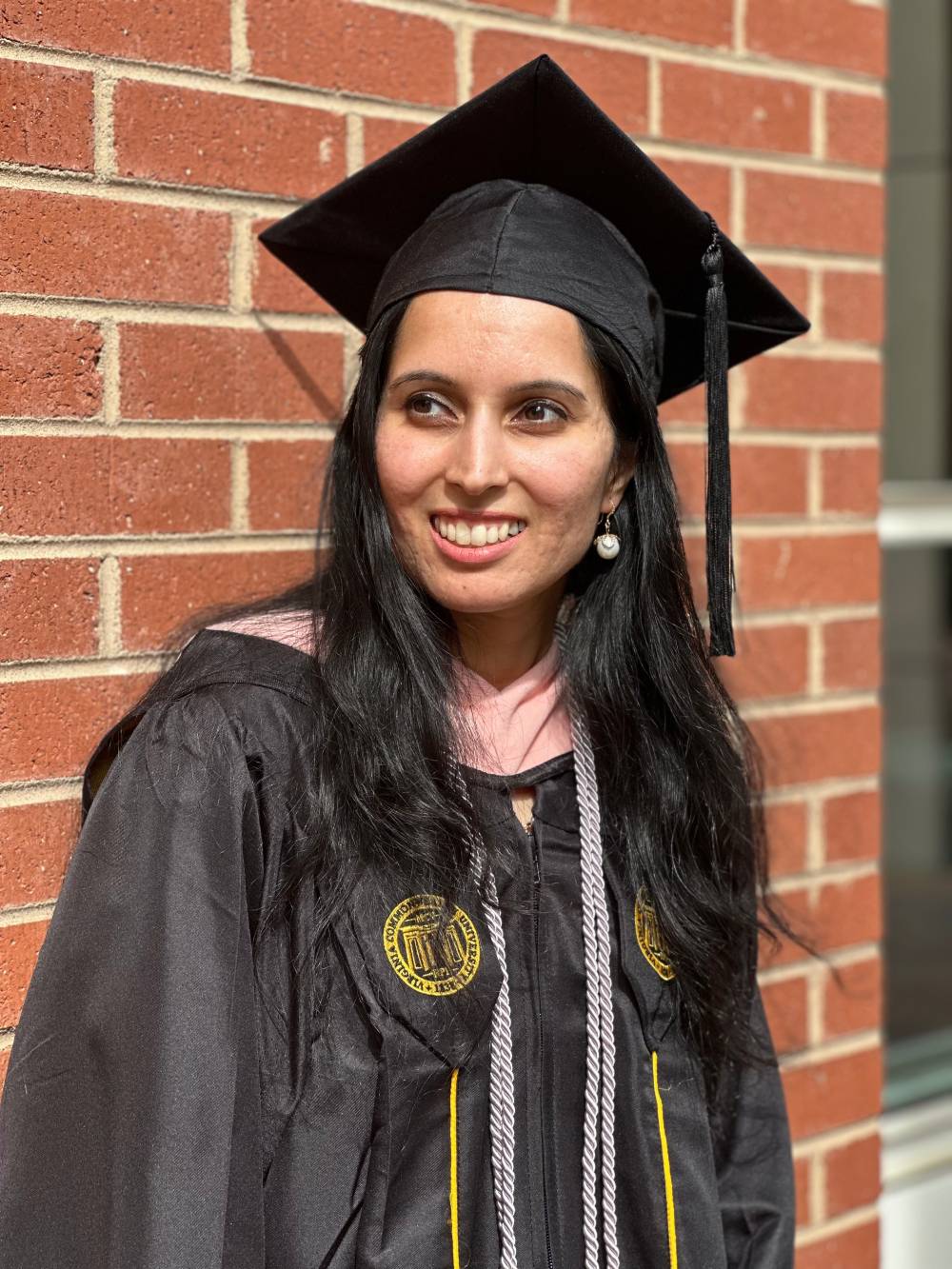MLS celebrates first alum of new public health laboratory sciences concentration
 In May, Poonamdeep “Poonam” Bajwa became a pioneer in the Department of Medical Laboratory Sciences.
In May, Poonamdeep “Poonam” Bajwa became a pioneer in the Department of Medical Laboratory Sciences.
The Fredericksburg native is the first graduate of a master’s program with a concentration in public health laboratory sciences. The new concentration offers advanced theoretical and technical coursework that prepares students for roles as laboratory supervisors, educators and researchers.
“It feels great,” Bajwa said. “I feel good to be the first person to participate in the program.”
Bajwa came to the concentration after earning two bachelor’s degrees in similar fields: one in biology from the University of Mary Washington, the other in clinical lab sciences from VCU. While the former gave her a solid foundation for her future studies, the latter gave her more hands-on lab experience and let her explore her fascination with the inner workings of the human body.
“I just thought it was interesting, analyzing different types of body fluids and getting to test different kinds of analytes,” Bajwa said.
The public health laboratory sciences concentration expands upon Bajwa’s interests by applying lab studies and testing procedures to entire populations, not just individuals. It also prepared her to leverage empirical data to implement lasting and proactive change in communities facing health challenges — the importance of which became clear to her during the COVID-19 pandemic.
“It’s not just about running tests and sending results back to the hospital; it’s about looking at trends and making sure the public stays healthy,” she said. “You’re really working to prevent outbreaks, not just treat them after they happen.”
Bajwa’s studies also helped her build her writing and speaking skills. These proved crucial when she presented her research project on the effects of atorvastatin, a cholesterol medicine, on Naegleria fowleri, a brain-eating amoeba. “That was a challenge, because I’m not much of a writer or speaker,” she said. “I feel like I’ve definitely grown as a person.”
Another assignment required her to analyze the lab research ethics at play in the case of Henrietta Lacks, a patient whose cancer cells were multiplied and analyzed by lab researchers at the Johns Hopkins Hospital in 1951. Though still used in research today, her cells were taken without Lacks’ knowledge or approval. “I thought the use of the cells was okay, but to take them without consent wasn’t, even though it really helped medicine today,” Bajwa said.
Bajwa plans to work in a public health laboratory and is currently considering roles in hematology and microbiology. She would like to work for two to three years before pursuing a doctorate in laboratory sciences.
“Poonam has worked hard completing coursework and a clinical rotation to expand her knowledge in public health through our partnership with the Division of Consolidated Laboratory Services,” said Melissa Jamerson, Ph.D., chair and associate professor of the MLS department. “I am confident that she will have a bright future working in public health.”
By John Battiston